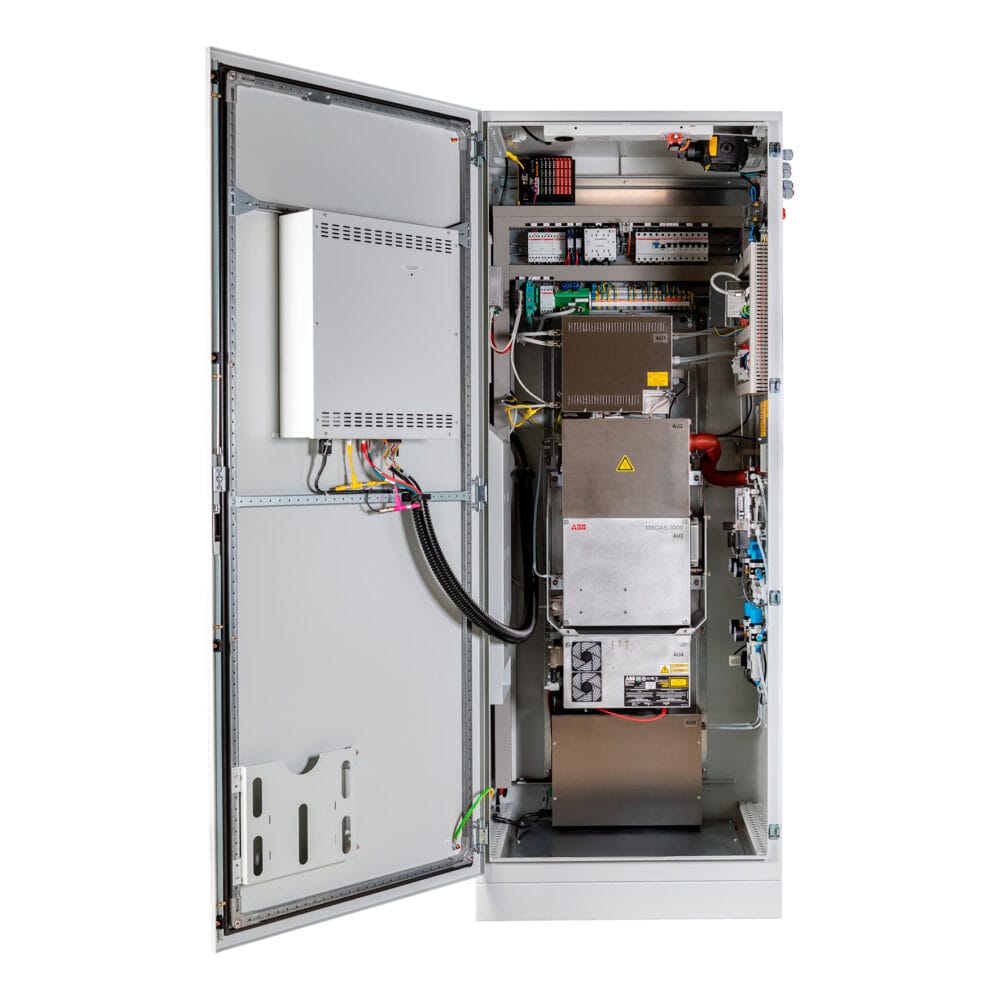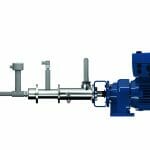- The first multi-component emission monitoring system using fourier-transform infrared (FTIR) spectroscopy was manufactured 30 years ago in Frankfurt
- ACF5000 supports industrial companies with meeting the most stringent requirements in environmental monitoring
- The current ACF5000 is capable of measuring the lowest in the industry concentrations of gases from combustion processes
ABB is marking the 30th anniversary of the first multi-component turnkey emission monitoring system using fourier-transform infrared (FTIR) spectroscopy. With FTIR technology under the hood – a technique used to obtain an infrared spectrum of gas emissions – the gas analyzer measures up to 15 components simultaneously with the highest levels of accuracy and reliability.
Manufactured 30 years ago in Frankfurt, the system is currently in its fourth generation, supporting industrial companies with measuring the lowest in the industry concentrations of gases from combustion processes. The gas analyzer measures exhaust gases from industrial chimneys in chemical plants, waste incinerators, cement kilns and more.
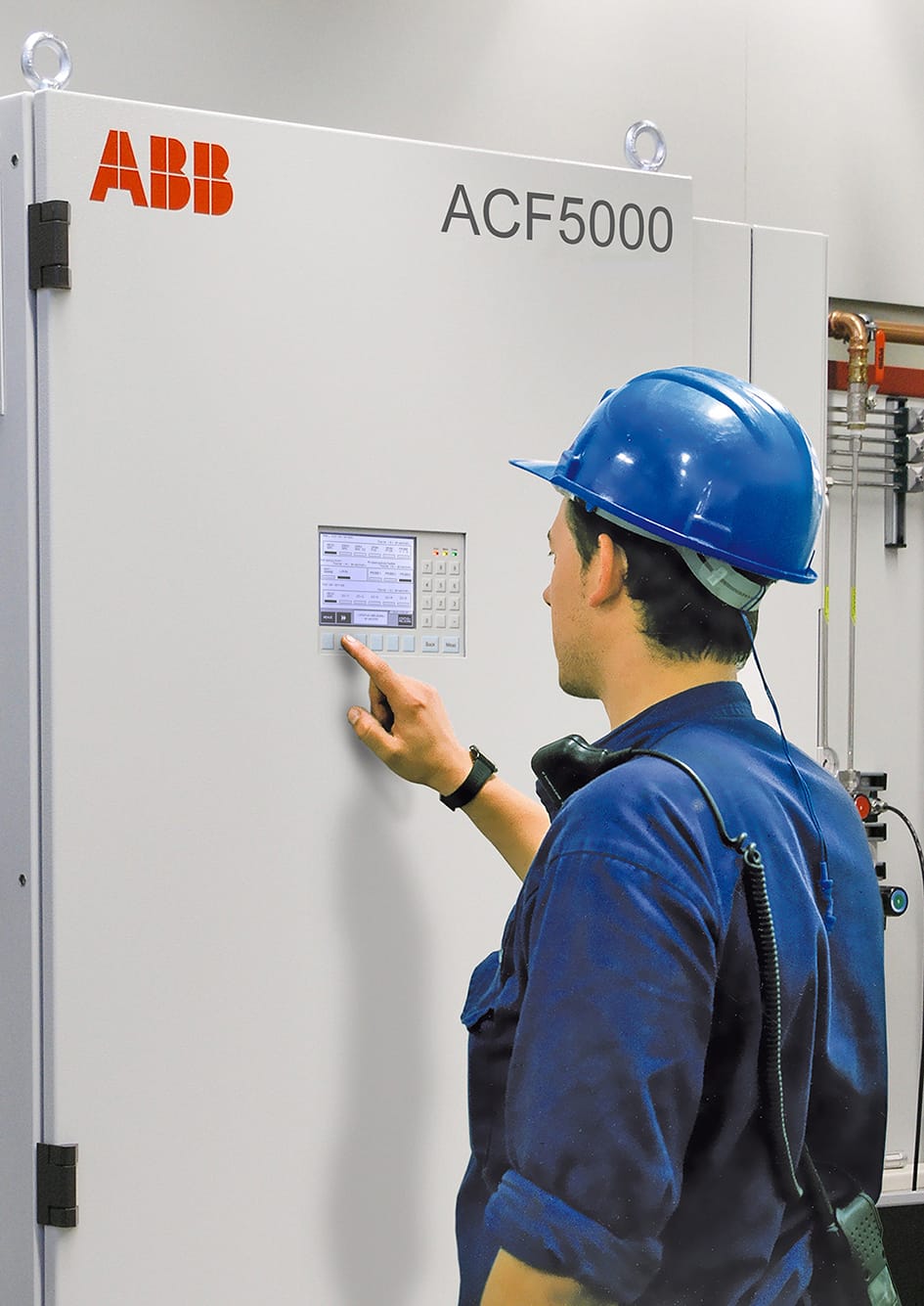
ACF5000 supports industrial companies with meeting stringent requirements in environmental monitoring.
For 30 years, the system has seen constant performance improvements – from the limits of detection to the number of measured components. The current ACF5000 is designed to expand its functions, adjusting to customers’ changing needs. New, mandatory components or changed emission limits can be added by a mere software upgrade.
“Because of the growing requirements in environmental monitoring, lower concentrations of an increasing number of pollutants must be measured from combustion processes,” said Ben Goossens, Global Product Line Market Manager, ABB Measurement & Analytics. “As industrial plants are heavily monitored and have to comply with the most stringent requirements, the ACF5000 is the perfect fit.”
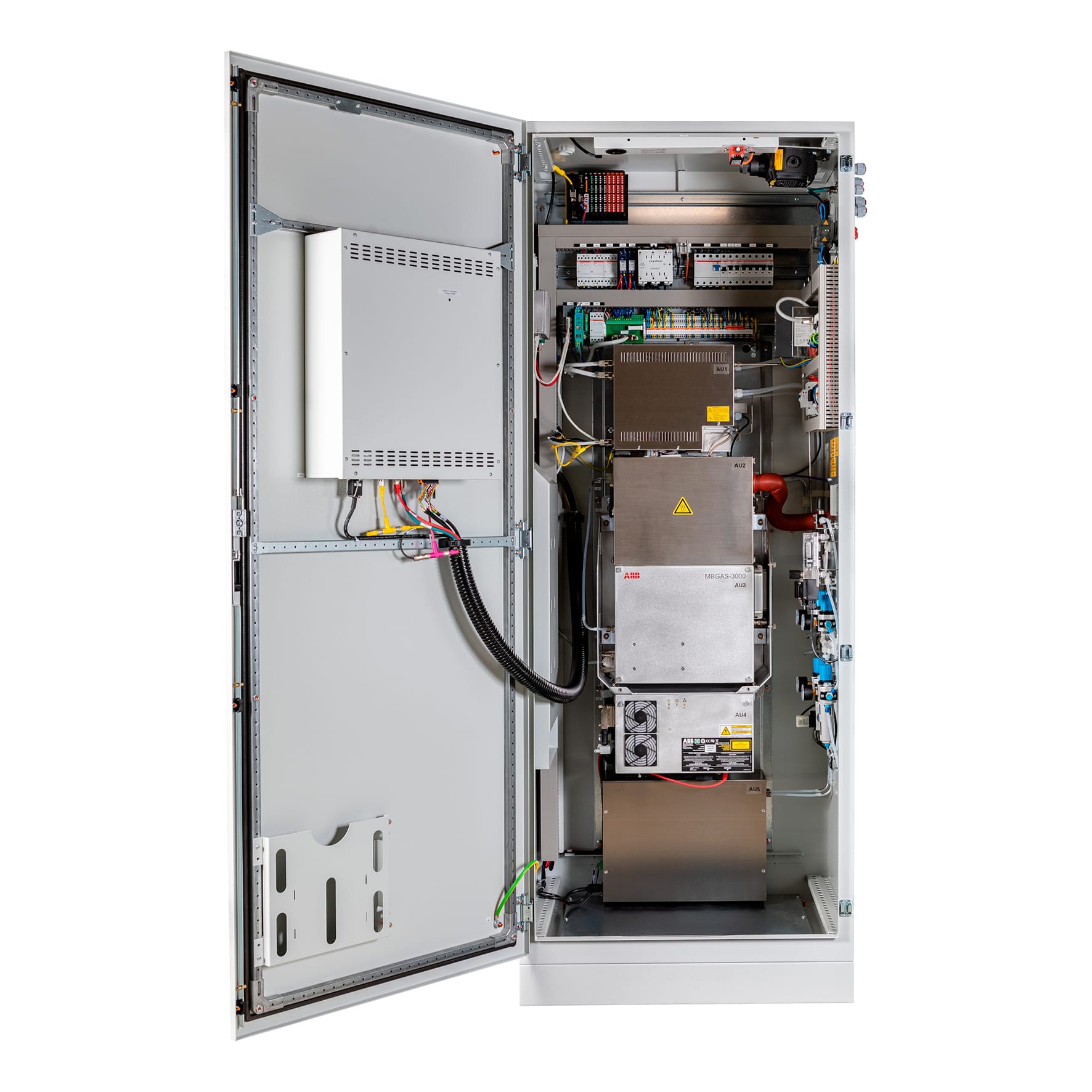
Manufactured 30 years ago in Frankfurt, the system is currently in its fourth generation.
The high-resolution FTIR spectrometer provides selective measurement of infrared active gas molecules with high sensitivity and stability. The FTIR measurement principle ensures that the spectrometer is free from drift and does not require frequent adjustments, removing the need for holding stocks of test gases that can be expensive and unsafe.
In 2002, the gas analyzer was upgraded with a fully heated system powered by an air injector, a technological breakthrough pioneered by ABB. The unique air injector pump eliminates the need for moving parts in sample handling, improving durability, reducing maintenance requirements, and increasing system availability and safety. The heating and placement in the gas path of the injector pump prevents condensation from taking place, protecting the system from corrosion but also ensuring that every molecule that is mandatory to measure remains in a gaseous state and can be measured.
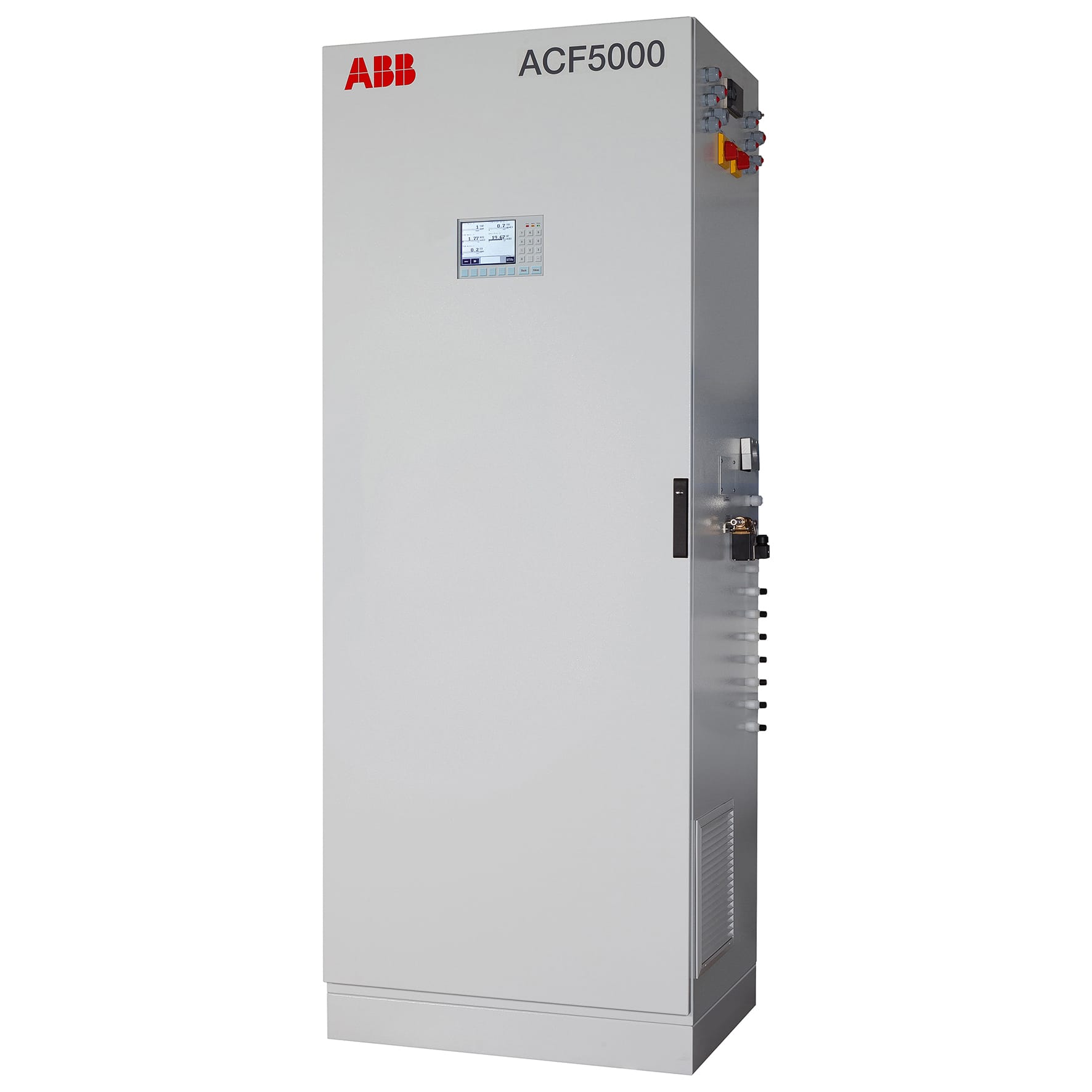
The current ACF5000 is designed to expand its functions, adjusting to customers’ changing needs.
The first generation of the ACF5000 was called Cemas FTIR – Continuous Emission Monitoring Analyzer System. In 1996, the second generation – the Advance Cemas FTIR – was improved by adding a heated pump. In 2002, the Advanced Cemas FTIR – New Technology was released, incorporating a heated air injector, an immediate hit in a market that had to meet new and more stringent regulations, especially in Europe. The fourth generation – the AFC5000 – was launched in 2014 featuring a built-in validation wheel allowing to validate the FTIR performance and to demonstrate compliance to local authorities without the need of test gases.
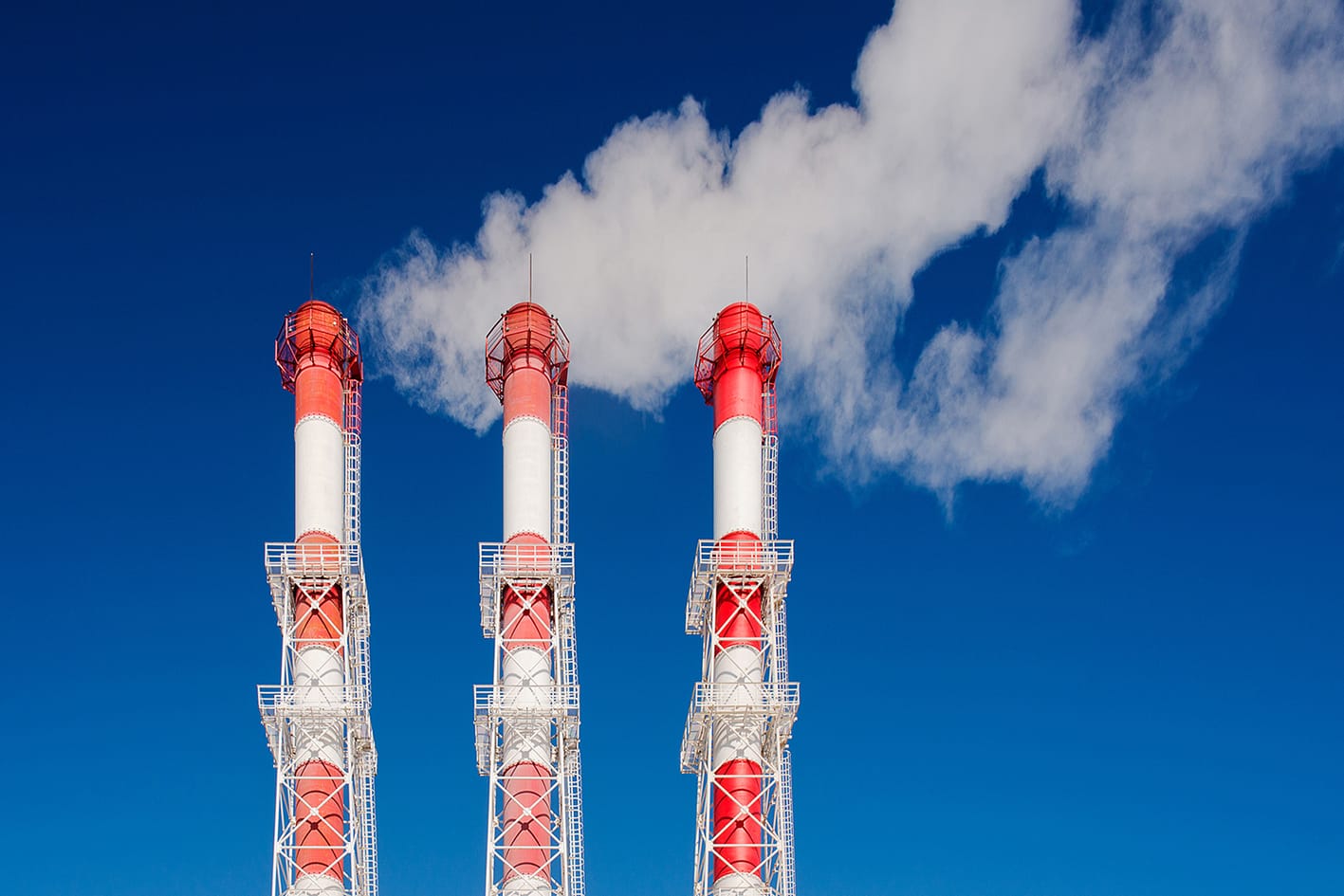
ABB is a market leader in continuous emissions monitoring.
With 70,000 certified continuous emissions monitoring systems (CEMS) installed across major industries, ABB is a market leader in continuous emissions monitoring. In 2023, ABB received the prestigious Frost & Sullivan “Company of the Year” award for vision, innovation, and technical expertise in emission monitoring.
ABB’s Process Automation business automates, electrifies and digitalizes industrial operations that address a wide range of essential needs – from supplying energy, water and materials, to producing goods and transporting them to market. With its ~20,000 employees, leading technology and service expertise, ABB Process Automation helps customers in process, hybrid and maritime industries improve performance and safety of operations, enabling a more sustainable and resource-efficient future. go.abb/processautomation
ABB is a technology leader in electrification and automation, enabling a more sustainable and resource-efficient future. The company’s solutions connect engineering know-how and software to optimize how things are manufactured, moved, powered and operated. Building on over 140 years of excellence, ABB’s more than 105,000 employees are committed to driving innovations that accelerate industrial transformation. www.abb.com

